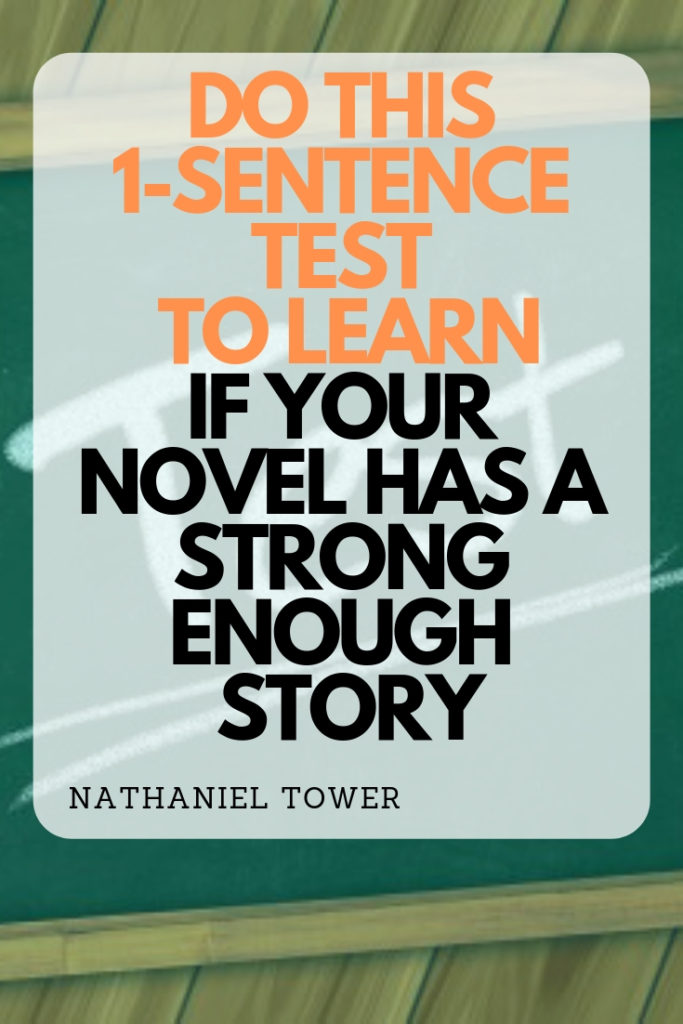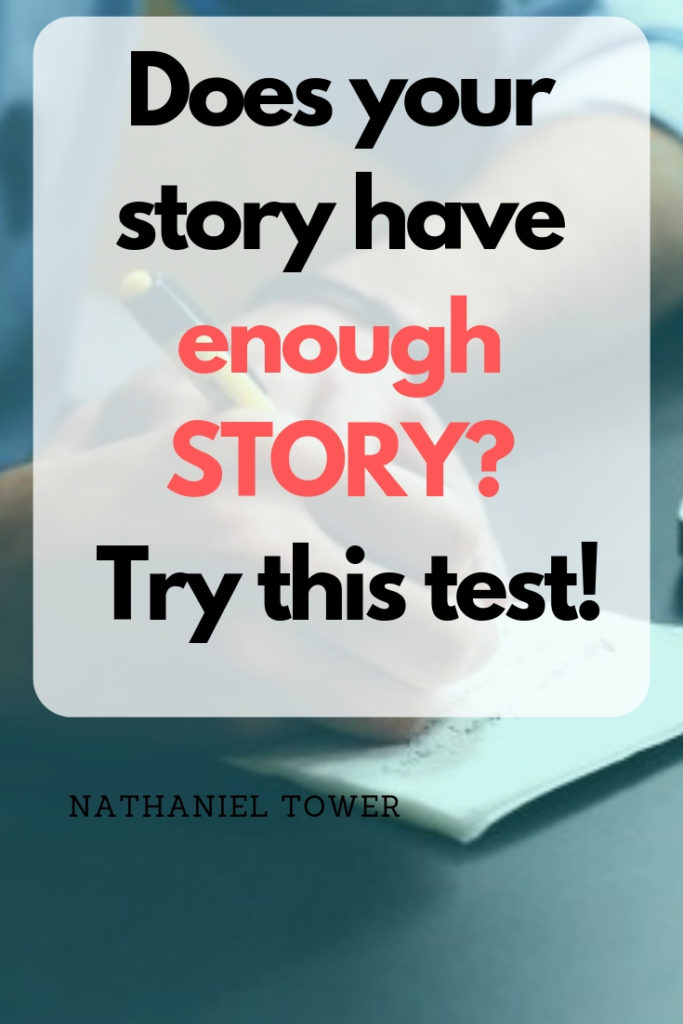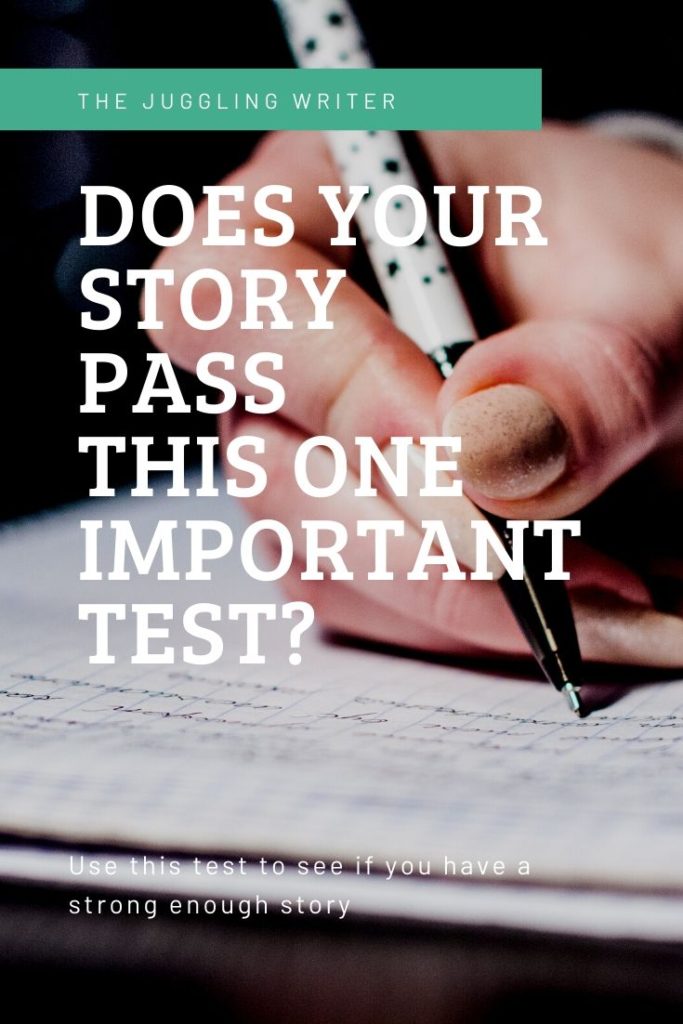Last Updated on April 1, 2020 by Nathaniel Tower
A few weeks ago, I stumbled across a story that led me to develop the one-sentence test. For the sake of anonymity, I don’t want to get into too many details about the story, but the “plot” was generic enough to share. The story was about a fart that led to a breakup. That was pretty much all there was to it. In fact, the story could have been rewritten as, “A man farted so his girlfriend dumped him.” Nothing would have been lost in this shortened version. This story fails the one-sentence test.

Here’s how you conduct the one-sentence test:
1. Attempt to summarize your entire story or novel using only one sentence. The sentence should be as simple as possible. Avoid lots of descriptive phrases, and don’t string together a bunch of clauses.
2. Determine how much of your story is lost in the single-sentence version. Be honest with yourself. Obviously a lot of word count is lost, along with some character development, description, setting, etc. But will the reader gain significantly from reading your full story as opposed to reading this single sentence? In other words, what does the reader truly lose with the one-sentence version?
The one-sentence test can help any writer determine if there really is enough substance to what he or she has written. As the editor of a literary magazine, I see plenty of stories that can’t pass the one-sentence test. Since developing this idea, I’ve been trying to apply it everywhere.
I recently finished reading John Darnielle‘s stunning debut novel, Wolf in White Van. I tried the one sentence test: Boy shoots himself in the face and develops a by-mail role-playing game. Then I asked how much I would have lost had I read this sentence instead of the novel. The answer: just about everything. This book definitely passed the test.
Then I began applying the one-sentence test to my own writing, starting with my novel-in-progress: An unemployed man attends funerals for money and his obsession causes his real relationships to deteriorate.
After developing the one-sentence summary, I asked myself how much was lost. Did this one sentence tell readers pretty much everything they need to know? Fortunately for me, the answer is no. The sentence, while it tells the reader about the book, doesn’t replace the experience of reading the book.
Of course, a novel isn’t likely to fail the one-sentence test. If it does, you are in big trouble. The one-sentence test applies more to short stories, and it can help you move beyond mere anecdote to a real story.
Admittedly, it’s tough to perform the one-sentence test on yourself. We tend to think there is more depth to our writing than there actually is. We also like to hold on to certain lines or paragraphs we think are brilliant or insightful even if they aren’t necessary in the context of the story. During the one-sentence test, you might say to yourself, “Well, it does capture the entire plot, but the reader misses out on so much philosophical insight.” Really? Or is this just something you are trying to convince yourself?
While you might need to get help from another reader to apply the one-sentence test, you can do it by yourself if you are disciplined. In fact, I was able to fail several of my own stories using the one-sentence test. For the most part, my stories that failed were silly pieces of flash that I probably pounded out in 30 minutes or less. These aren’t stories I would ever try to fool myself into believing were brilliant or trying to change the world. However, some of them were stories I’ve been sending out for publication. Thanks to the one-sentence test, they won’t be getting rejected again anytime soon.
There’s one more catch to the one-sentence test. What if you can’t develop a single sentence that serves as a brief retelling of your story or novel? What if no single sentence can even begin to get at the root of what your story is about? Well, that might be another problem completely. This could be a sign that your story has no direction or too many competing narratives. Yes, there’s more than one way to fail this test.
Can your stories pass the one-sentence test? What are some other tricks you use to make sure you have enough substance to your stories? Share your thoughts in the comments.



Like you said, we like to believe our own writing is more complex than it is in reality. So for my first draft, I’m making things as complicated as possible, with as many unneccesary details as I want- when editing, I plan on just cutting out what doesn’t sound good. What could go wrong with this plan? *rolls eyes*
I really like this plan. I say first drafts are for getting out everything you can. You can always cut later. Of course, you can always add later as well.
I agree with the post. Some books are all details, and no actual story. I tried it for my own project as well: “How poverty and poor upbringing can lead to the making of monsters” – though I think this sounds more like the theme and not a condensed sentence?
Every writing class I’ve ever taken starts the formation of a story with a single sentence. This is basically “the snowflake method” of writing regurgitated. And with a lot of context missing.
I like this test. My short novel passed!